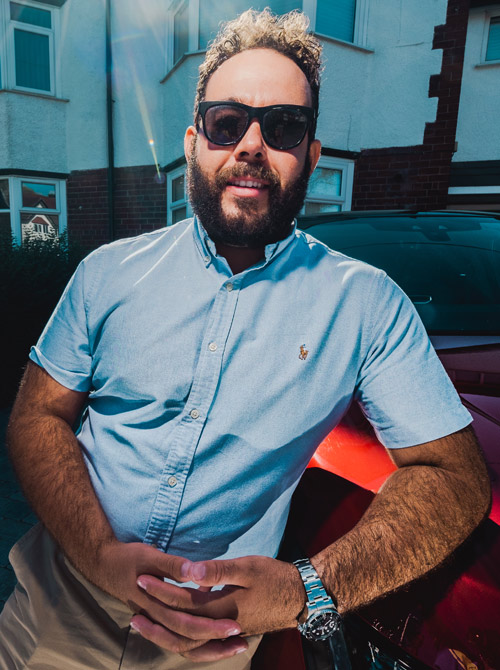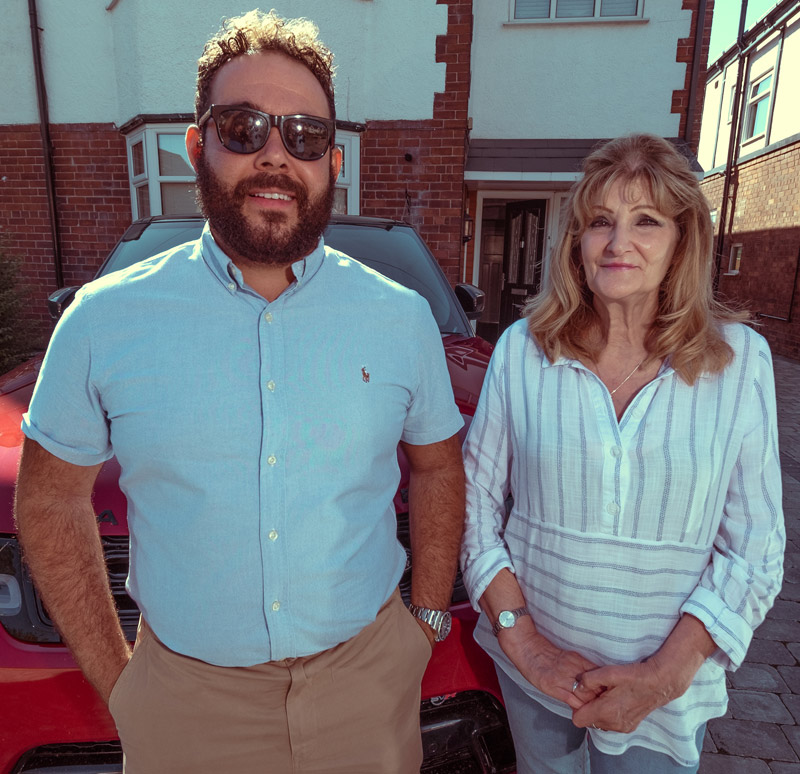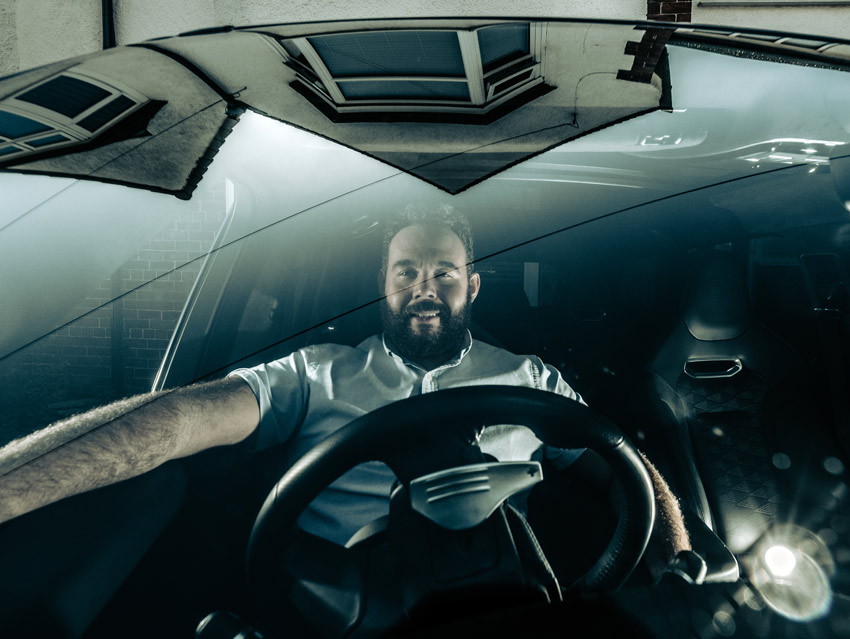
OUR STORY 2008 - 2023

Caine Wild
Favourite Freedom Road moments:
Sitting on a doorstep looking up at the stars in Sydney and being at the helm of a river vessel in Brisbane wearing the captain’s hat.
The greatest lessons learned from Freedom Road:
To not doubt yourself, listen to the people around you, and mess up – it’s how you learn.
Freedoms gained:
Learning to believe in freedom, and it giving me the oomph to achieve.
Caine’s story:
When the staff from Freedom Road approached Caine Wild’s headteacher to say they were taking him to Australia, she curtly said: “Good Luck!”
Caine was 13 and being schooled at what he calls, a “bad lads’ place”. He was being restrained up to five times a day and the idea of taking him on a long-haul flight seemed ludicrous to the school.
Freedom Road had been invited to Australia to sing at a conference hosted by the Create Foundation, which helps Australian children growing up in care. Caine was given the chance to fill an empty place in the choir when another boy dropped out. He describes it as “fate”. Caine is a big believer in fate. It is easy to understand why, when you hear his story of the trip, which he could easily have missed out on.

Cain and his Grandma
This is how it goes…
Caine, who was raised by his grandparents, believes a lot of his behavioural problems stem from the death of his aunt Mandy in a car crash, which happened in Australia when Caine was six. So accepting a ticket to travel to Australia was a big deal for him.
Then, weeks before the Freedom Road crew were due to fly, another of his aunts died in a car crash, this time in the UK. Caine says: “In my head, I was thinking, it’s someone up there telling me not to go to Australia. But my grandma said I must go, she said I couldn’t miss the opportunity.”
Filled with apprehension Caine boarded the flight, which the headteacher believed he would disrupt. It transpired it was almost empty and all the young people on the trip slept comfortably throughout the first leg as they were able to lie down.
Caine caused no problems. The group touched down and headed straight for what Caine calls a “Maccies”, they were all dying to know what an Australian McDonald’s was like, but less familiar experiences also beckoned.
Caine says his breath was taken away by Australia. He had to pinch himself to believe he was there. It was a few nights into the trip that Caine had what can only be described as an epiphany.
He explains. “I’d seen pictures of where my Aunty Mandy had been; I knew she’d been to Sydney and we were there. I remember I was sat on the doorstep in Sydney looking up thinking, ‘This world’s massive, there are so many places to see and explore, but you can only do it if you achieve and strive to do better in your life’. It was almost like a closure, but an opening at the same time. It was fate that I went on that trip. It really opened my eyes to the world.”
It was an extraordinary turning point for Caine. He had just become a teenager, and although he wouldn’t class his early childhood as troubled, he says it was “challenging”. His mum was around 17 years old when she had him and his family decided it was best for his grandparents to look after him. What was supposed to be a temporary measure turned into a permanent fixture in Caine’s life. In fact, he still lives with his grandma now. His grandfather died when he was 17.
It is important to note that Caine has an excellent relationship with his mum and has had throughout his life. They have a friendship that allows him to talk to her about relationships and other important things. But it is his grandma he sees as a parent.
In his early life, Mandy was the “bubbly” aunty who turned up, showered him with love and sweets, and made him happy. He says: “She was a big influence. She was someone external from my grandma that would give me a telling off, from my granddad that would give me a telling off, from my mum that would give me a telling off, someone that would bring me sweets and nice things.” It’s strange, but Caine says he felt responsible for her death. He says: “I blamed myself a bit. I remember at the leaving party before she went to Australia thinking something bad was going to happen. I remember deep down thinking to myself, don’t let her go. “But she left and something did happen and it was from those early times onwards I declined.”
Primary school wasn’t easy for Caine. He says: “At school things never seemed to go my way. I still remember the first time I got in trouble. Someone had lashed out at me and I threw a dinosaur, and I was the one who got in trouble.” He says instinctively he learned that being the source of disruption meant he’d be the centre of attention.
Caine explains: “If I was doing bad things I get this one-to-one time either at home with my grandma and granddad, or in isolation with a teacher. I was getting what I needed.”
As he went through primary school his teachers started to say things like he would “end up in prison”.
It came to a head like this…
Caine says: “I was at a local primary school. I’d run at a teacher and she’d got injured, quite badly and I remember someone saying, ‘Right you’re off to White House’. And I remember at the time putting up this front… I was storming round the school going, ‘I’m off to see the President of the United States’. But deep down I was quite scared. I remember turning up and the lads, they were massive. They took drugs and stole cars, I had a lot going on in my head, but I wasn’t like them. It was an intimidating situation.”
It was here at the pupil referral unit that Caine began seriously kicking off in order to keep up with the big kids and not become their target. This is a recurring theme amongst Freedom Road graduates.
He was referred to the Hull’s Rights and Participation Project (RAPP) and from there won his place on the Australia trip with Freedom Road, which was closely associated with RAPP. When he came back from Australia the staff at the pupil referral unit rang Freedom Road to ask what they had done to change Caine.
Caine explains: “When I returned, I’d changed. The staff at school even said to Freedom Road, ‘What have you done to Caine? He’s completely changed’. I did still get restrained, but maybe only once a month.”
The starry night in Australia is something that Caine casts his mind back to daily. It was the moment he realised he wanted to be free, the moment he decided he couldn’t end up in prison. “I still say that if it wasn’t for Freedom Road and it wasn’t for that trip of a lifetime, I don’t think I’d be sat here today. Freedom Road is such a great charity. I will forever be in their debt.” He says his grandma feels the same: “Even to this day my grandma is forever thankful for Freedom Road because we’d got to this point where we was backed into a corner. Everyone was trying to help me, but nothing was working.”
His path to adulthood has taken twists and turns. Aged 16, inspired by the drama classes he took at Freedom Road, he embarked on his dream of becoming a soap star, by studying drama. But Caine’s world once more crashed in on him when his grandfather died of cancer and Caine made a dramatic about-face and decided to follow his grandad’s wish for him to join the navy. He was 17. Always drawn to glamour and fast living Caine picked “the most Gucci” looking career they offered. But life in the Navy wasn’t like the YouTube careers video he’d watched. He recalls being forced to sit in something akin to a school isolation booth to learn Morse Code. Feeling trapped and as if he had been “sold a dead horse”, he worked out how to get out of the service, which he was signed up to for four years. “I failed the Morse Code test and I kept failing,” he explains.
Today, like other Freedom Road graduates he is helping Hull’s most troubled teenagers. He runs his own business eponymously named Wild Intervention. It provides supported accommodation for 16- to 18-year-olds. Caine’s work isn’t entirely altruistic; he has always had an entrepreneurial streak and he loves the idea of empire building. He wants to develop national and international arms to his business. But deep down, he also loves the challenge of taking a teenager just like him and turning their lives around. He explains: “I’ve been that young person that everyone said would end up in prison. It was only down to Freedom Road, my grandma, my grandad, my mum standing by me, being consistent for me, that I’m ok. I want to be one of those individuals in those young people's lives that can really help them.”
Caine says Freedom Road “pulled him out of a dark place”. It gave him life skills. He lists them: “Independence skills, confidence, teamwork, integrity, resilience”.
He continues: “There was loads of other things they taught us – de-escalation skills, calming skills. They taught me to go for a walk to calm down, as long as I told someone where I was going.”Caine will always have Freedom Road like a voice in his head coaching him, but like other Freedom Roaders he has them in his heart too. “I know they will always be there for me if I need them. Like my family, Freedom Road saw something in me and stuck by me.”

For more info please find us at:
or on 07921800617
CHILD PROTECTION & SAFEGUARDING CHILDREN POLICY & PROCEDURES
COMPLAINTS PROCEDURE
charity number:1124982
